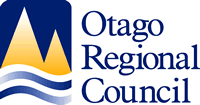Otago Regional Council
Field staff diversification increases job satisfaction and efficiency
 Thanks to a management initiative, field staff at the Otago Regional Council can now do it all, from killing rabbits to first appraisal of dam safety, building compliances to assessing water quality.
Thanks to a management initiative, field staff at the Otago Regional Council can now do it all, from killing rabbits to first appraisal of dam safety, building compliances to assessing water quality.
The multi-skilling of the Council’s field staff has had a positive effect on their efficiency and preparedness, says Chief Executive, Graeme Martin.
Breaking from the traditional staff structure, with separate teams fulfilling different functional roles, the initiative has resulted in expanded capability and an innovation of techniques – without increasing staff numbers.
“In an environment of increased service demand, we have been able to respond more quickly,” says Mr Martin. Otago is New Zealand’s second-largest region and covers approximately 32,000 sq km or 12% of the country’s land area. Mr Martin says that, because of the large land area that the Council serves, response time was an issue, as it can take up to three hours to get to a job.
Effectiveness means better or best outcome for the input. Efficiency is lesser input for output.
In addition to this, specialist work is often seasonal and the Council did not want to lose the expertise of seasonal staff. “We have a variety of specialist tasks that need to be done,” he says. “Some people were working below their capability for part of the year and others needed to be upskilled.”
The solution to this problem was found in combining the field teams, who now work together and often attend jobs in pairs, where one will be the specialist in that field and the other from a different function. This results in all staff being able to attend jobs across the Council’s full spectrum of field work.
Mr Martin says management drew up a proposed structure and took that to a whole-of-staff meeting. “We left it with them, noted who it would most affect, and invited all staff to comment, because there is always good stuff in that.”
To co-ordinate the initiative, there have been some changes made to the roles and time management of a couple of managers, says Mr Martin, and they are now getting through more work more quickly, and travel cost and distances are reduced.
Mr Martin says the focus on higher and broader skills in the field teams has given staff a huge boost in morale. “It’s been a joy to observe,” says Mr Martin. “Staff have moved from narrow career prospects to more career opportunities.”
In hindsight, although Mr Martin says he would not carry out the 100% internally driven process any differently, he would have implemented it earlier, since it has been such a success on so many levels. “But now it has become part of the culture of the Council.”
He believes other councils would benefit similarly from this initiative.
Based on an interview with Graeme Martin, Chief Executive, on 21 June 2012.
Disclaimer: This case study is the entity’s story – we have not audited the facts but have confirmed with the entity that its story is fairly represented.
